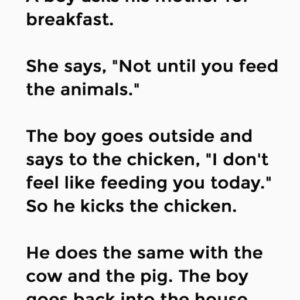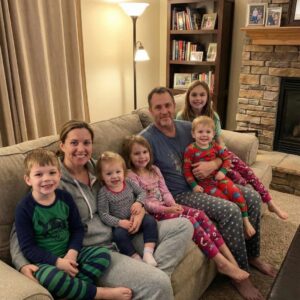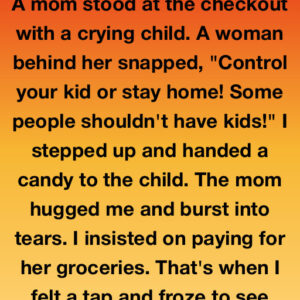After 14 years, Peter told me I was “too tired, too boring, too much,” then left me and our four kids for his carefree colleague. No warning, just a text. A year later, as I was finally healing, he showed up at my door with a cheap bouquet and a request that changed everything.

For 14 years, I gave everything to our family.
I juggled four kids, packed countless lunches, managed dentist appointments that never seemed to end, and scrubbed more mashed carrots from car seats than I care to remember.
I was so busy taking care of everyone else that I barely noticed when the man I shared a bed with became a stranger.
Then came the text message that broke me.
I was elbow-deep in the second load of laundry when my phone chimed.
The phone fell from my fingers as I read the message, landing on the folded towels. My world narrowed in on the words on the screen.
“I can’t do this anymore. I’m sorry,” Peter had texted. “You’re too tired. Too boring. Too much. I need more from life.”
But Peter didn’t just walk out of a marriage.
He walked out on our daughter Emma’s dance recital that she’d practiced for months. He walked out on four young lives that depended on him.
And then came the Instagram posts about his new life, and everything made sense.
The morning after he left, my phone buzzed with a notification.
There they were: Peter and Elise, his red-lipped colleague who had no children, commitments, or people to care for, just freedom. They were at some rooftop bar, clinking glasses, his arm around her waist.
The caption read: “Starting fresh.” The post had 322 likes.
I threw my phone across the room.
“Mom? Is everything okay?” My oldest, Jake, stood in the doorway.
I swallowed hard and nodded. “Just dropped my phone. Are you ready for school?”
He scanned the room and nodded. “Where’s Dad? He’s not downstairs…”
I hadn’t spoken to the kids yet because I didn’t really know how to tell them Peter had left us via a text message.
But I couldn’t put it off any longer.
I broke my kids’ hearts over breakfast. I comforted them as best I could, tried to answer their questions, and made sure they knew that no matter what happened next, I would be there for them.
It didn’t matter how deeply Peter had hurt me because there was no time to cry. I had four lunchboxes to pack. Four kids to keep whole.
So, I went into survival mode.
I held myself together while silently unraveling. The silence from Peter was loud, but my to-do list was louder.
My days were an endless cycle of waking up, making breakfast, school drop-offs, work, school pick-ups, homework, dinner, baths, bedtime stories, repeat.
Somewhere in there, I was supposed to grieve. Instead, I folded laundry.
“When is Dad coming home?” seven-year-old Lucy asked one night as I tucked her in.
“Dad is staying somewhere else right now,” I said, smoothing her hair.
“Because of me? I know I was always loud at breakfast, and I’m not good at math…”
My heart cracked.
“No, sweetheart. Never because of you. Grown-ups sometimes make choices that have nothing to do with how amazing their kids are.”
But if I’m really good, will he come back?”
I kissed her forehead and changed the subject. Later, I cried in the shower where no one could hear me.
After the heartbreak came resolve. I sold the piano Peter never played and used the money to turn the guest room into a home office.
I reentered the classroom full-time, teaching fifth grade again after years of substituting to accommodate Peter’s unpredictable schedule.
I finally joined that book club I’d been eyeing for years. I made friends there and laughed for the first time in months.
“Mom, you seem happier,” Emma said one Saturday morning as we made pancakes together.
“Do I?”
“Yeah. You’re singing again. You used to sing all the time when we were little.”
I hadn’t even realized I’d stopped.
But the healing wasn’t linear. Some days were easier than others
The kids gradually stopped asking about their dad. I stopped checking my phone for messages that never came.
Somewhere along the way, surviving turned into thriving.
Seasons changed. I didn’t. I got stronger, though. A woman forged from daily resilience and quiet victories.
The kids gradually stopped asking about their dad. I stopped checking my phone for messages that never came.
Somewhere along the way, surviving turned into thriving.
Seasons changed. I didn’t. I got stronger, though. A woman forged from daily resilience and quiet victories.





